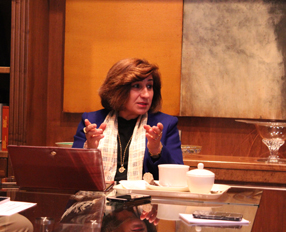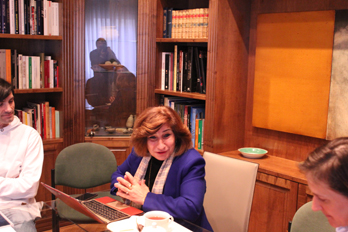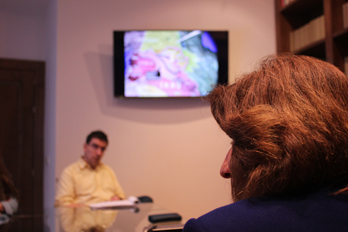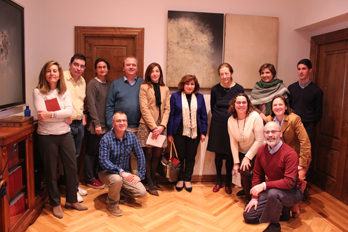
Together with the staff of the FPSC, Rafael Palomino, Professor of Ecclesiastical Law of the Faculty of Law of the Universidad Complutense de Madrid, participated in the meeting.
Pascale Warda was Minister of Immigration and Refugees in Iraq’s interim government after the 2003 war. She professes the Catholic religion and is a tenacious advocate for minority rights in her country.
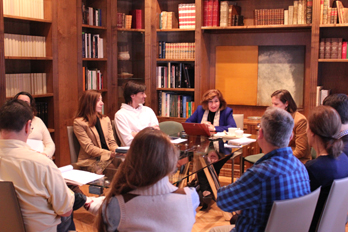
Throughout the meeting, she referred to the position of women in Iraqi society. She commented that in the first Government of 2003 six women were appointed ministers; today there are only two women ministers in the government. The role of women is fundamental in improving the conditions of Iraqi society. We are more than half of the population!
Regarding the situation in Iraq, she said that it is in a situation of insecurity. In the North, where it is said that it is released from Daesh, the population is afraid. Recently a suicide bomber entered the Christian dormitories for the Christians and Yezidis students of University of Kirkuk, who were after ISIS attack welcomed officially to Erbil to their families in displacement situation since ISIS genocide against them, lucky enough that the students recognized him and fled. No one was injured.
What can Europe do? Iraq is a shattered country, which was an empire, with a rich culture and a long tradition. Hira’s excavations discovered at the site of the Najaf airport demonstrate the country’s cultural importance and Christian presence. These civil buildings and Christian churches are sumptuous. This is the premise for stating that what is happening in Iraq could be happening anywhere else in the world. Iraq has raw materials and geographic and climatic conditions that could enable it to have a good standard of living. Pascale Warda points out that Iraq is suffering a war that “is also European.”
Europe must be informed of what is happening and fulfil its obligations. Europe has to promote the good that the Christian religion has, especially what has to do with forgiveness and its culture of peace.
Faced with cultural diversity and despite the difficulty that minorities are living, especially the Christian, she commented on the idea that “we are all different and we each have our place, but most importantly we must re-establish dialogue to overcome differences and conflict situations. The solution goes through education.”
She expressed the idea that Europe must defend its culture, its roots, its traditions and stressed the importance of rejection to terrorists, not to Muslims. Terrorism is the enemy to fight.
Despite the serious situation Pascale Warda ended with a few hopeful words; Iraq is a great nation, with great economic, cultural, business potential, we have to overcome this stage. The future is promising.





